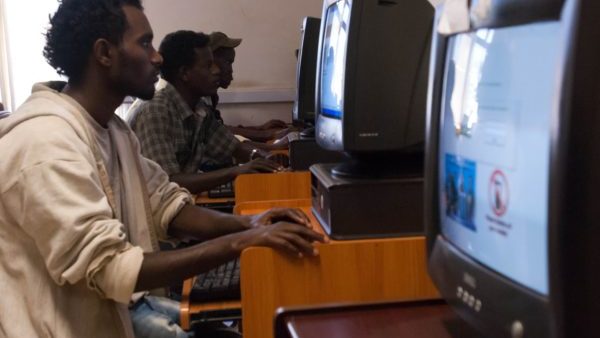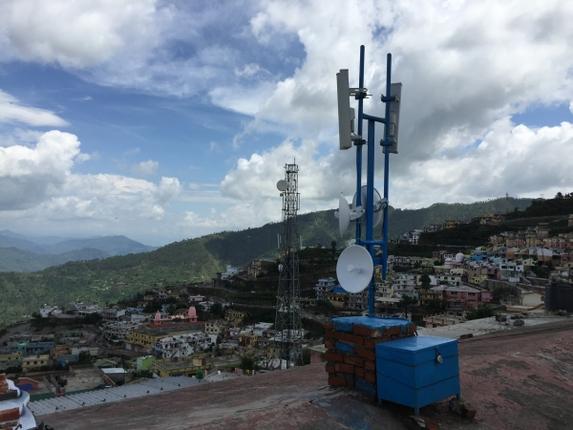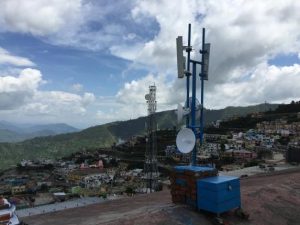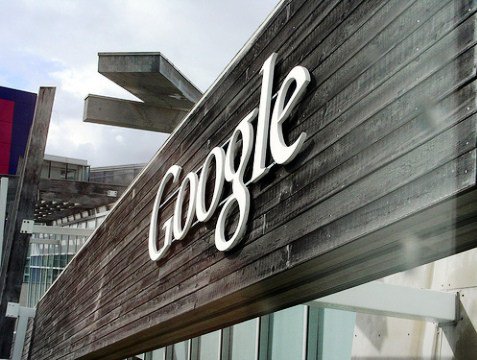To facilitate broadband penetration in the country and in a quest to bridge the digital divide, the Nigerian Communications Commission (NCC) has put in place initiatives to fast-track internet access in the country.
TheNewsGuru (TNG) reports Prof. Umar Danbatta, Executive Vice Chairman of NCC, while stressing the Commission has taken services to several unserved and underserved areas in the country, stated this while speaking with newsmen on Thursday in Abuja.
He said NCC had issued license to seven infrastructure companies to deploy the needed infrastructure to facilitate the required penetration in the 774 Local Government Areas (LGAs) in the country.
The InfraCos licenced by the NCC are Raeanna Nigeria Ltd for South South, O’odua Infraco Resources Ltd for South West (excluding Lagos), Fleek Networks Ltd for North West, Brinks Integrated Solutions for North East, Main One Ltd for Lagos zone and Zinox Technologies Ltd for Southeast.
“While we celebrate the seeming story recorded in these directions, the NCC has put incentive for infrastructure companies (Infracos) in order to encourage speedy deployment of infrastructure that will deepen broadband penetration.
“In line with our initiatives to encourage investors for infracos to roll out, NCC created provisions in its 2017 & 2018 budgets for subsidies to the infracos.
“The Government through the NCC has launched the open Access Model Broadband Deployment. As a prelude to the above, 2.3GHz was issued to Bitflux Consortium; 6 of the 14 slots available on 2.6GHz to MTN Nigeria and 2 slots to openskys. Six slots are still available for assignment,” Danbatta stated.
As regards Quality of Service, the NCC EVC said the Commission had engaged critical stakeholders to resolve multiple taxations, multiple regulations and indiscriminate shutting down of live base stations.
“To Optimize Usage and Benefits of Spectrum, The commission has introduced spectrum trading. The NCC has also licensed quite a number of internationally harmonized wireless frequencies and encouraged re-farming of various others to improve capacity.
“To promote ICT innovation and investment opportunities, the NCC approves grants to facilitate research in areas of need within the industry. NCC has also encouraged telecoms operators to embark on corporate social responsibility initiatives that drive local content development.
“In Facilitating Strategic Collaboration and Partnership, NCC has hosted Stakeholders Consultations on National Roaming, Industry Working group on short code. NCC has also signed MoUs with agencies like NESREA, CPC, NITDA, CBN, Nigeria Police etc
“To Protect and Empower Consumers, NCC Engages Consumers through various outreach – Consumer Parliament, Consumer Outreach Programme and Consumer Town Hall Meeting. NCC also declared 2017 the year of the Consumer to underscore the importance it attaches to the consumers.
“In Promoting Fair Competition and Inclusive Growth, Regulation of VAS and its Framework, Determination of cost based pricing for fixed transmission services in Nigeria and Market Dominance Determinations has been done by NCC.
“To Ensure Regulatory Excellence NCC has intensified Compliance Monitoring exercises, Promotion of Corporate Governance Code,” the NCC boss stated.
TNG reports NCC had been acknowledged as one of the foremost telecoms regulator in Africa by ITU.
The Nigerian telecommunication contributed 10.43% to the GDP in the second quarter of 2018.
Statistics shows that for every 10% increase in broadband penetration, there is corresponding 1.3% increase in GDP of a nation.



